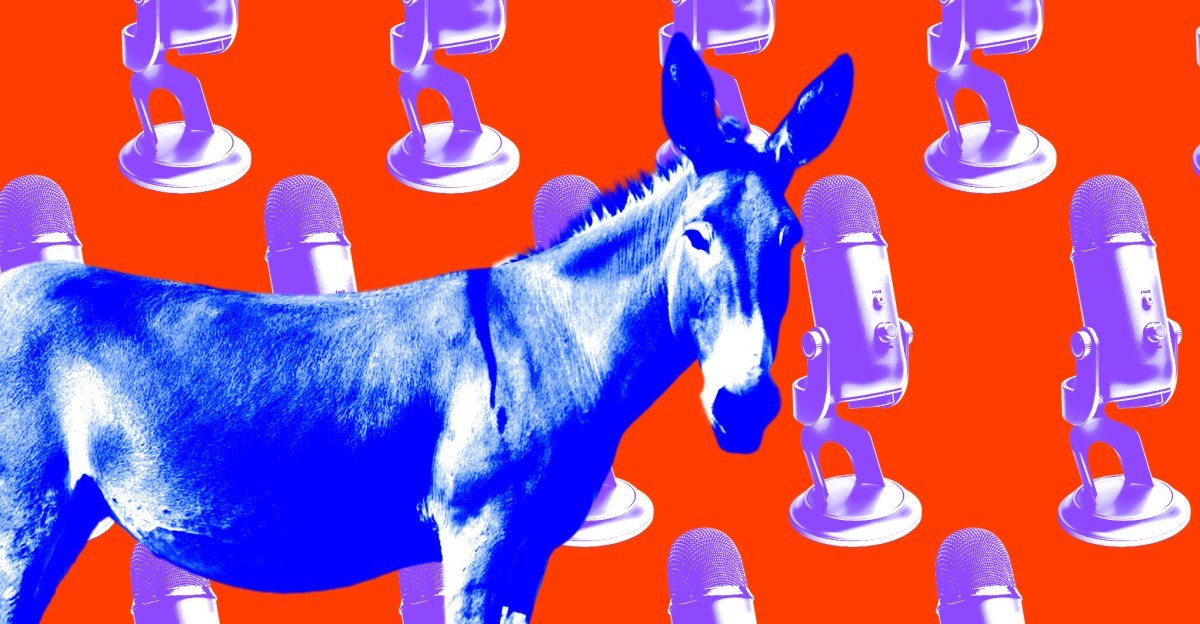Can Left-Wing Influencer Programs Compete With MAGA?

▼ Summary
– A secret Democrat influencer incubator called Chorus trained and paid liberal content creators to push coordinated messaging while requiring secrecy and controlling their interviews and statements.
– Chorus, funded by the liberal Sixteen Thirty Fund, aimed to organize left-wing influencers to counter MAGA counterparts, defending the program and noting increased interest after media exposure.
– The author compares Chorus to right-wing training programs, drawing from personal experience in conservative media pipelines that openly operate without secrecy.
– Unlike the transparent and culturally embedded right-wing influencer programs, Chorus faced backlash for its lack of openness, reflecting Democratic struggles with uncontrolled media environments.
– The controversy highlights issues of transparency in political influencer funding, with audiences less concerned about payments than undisclosed affiliations, contrasting with MAGA’s accepted donor-backed operations.
The recent exposure of a secretive Democratic influencer training initiative has ignited fierce debate about whether left-wing digital campaigns can effectively rival the well-oiled MAGA messaging machine. Known as the Chorus Creator Incubator Program, this effort, backed by the Sixteen Thirty Fund, sought to organize and finance progressive content creators to disseminate coordinated political content. Participants were reportedly bound by strict confidentiality agreements, barred from discussing their involvement or criticizing certain political figures, while also ceding control over media appearances to program organizers.
In defense of the initiative, Chorus founder Brian Tyler Cohen argued that such coordination is necessary to counter the highly organized conservative digital ecosystem. He emphasized that the program aims to elevate pro-democracy voices and support creators who might otherwise struggle financially. Despite these stated goals, the revelation sparked immediate backlash within left-leaning online circles, with creators accusing one another of hypocrisy and secrecy.
This approach mirrors tactics long employed by conservative groups, which have built extensive networks to identify, train, and deploy media talent. Organizations like the Leadership Institute and Koch-funded programs have for decades groomed young conservatives for careers in media, politics, and digital influence. Unlike their liberal counterparts, however, these programs often operate with a degree of transparency, participants openly discuss their training and affiliations, and their audiences generally accept these connections as part of a broader ideological project.
A key distinction lies in cultural strategy. The right has long operated on the principle that politics is downstream from culture, leveraging entertainment, media, and online communities to shape public opinion. Conservative influencers embrace their role as cultural combatants, often funded by identifiable donors or aligned institutions. Their followers rarely object to these arrangements, viewing them as necessary to challenge perceived liberal dominance in mainstream culture.
By contrast, the Democratic effort appears hampered by a desire for control and a deep-seated discomfort with organic, unscripted digital engagement. The very need for secrecy, contractual clauses forbidding disclosure, controlled messaging, and centralized booking, suggests a fundamental mismatch with the realities of online culture. Where right-wing creators often boast about their affiliations, liberal influencers found themselves on the defensive, unable to reconcile paid coordination with expectations of authenticity.
The comparison to the Koch network is particularly revealing. Like Chorus, Koch-funded initiatives in the late 2000s poured resources into shaping political movements, most notably the Tea Party, while attempting to maintain a veneer of grassroots authenticity. That model ultimately proved fragile, unable to withstand the rise of Trump’s more visceral, anti-establishment style of politics. The current Democratic effort risks repeating these mistakes, layering donor-driven messaging onto digital communities that value transparency and independent voice.
Audience reaction to the Chorus controversy has been mixed. While some followers expressed frustration over the lack of disclosure, many others seemed unfazed, or even supportive, of creators receiving payment for political advocacy. This reflects a broader shift in digital culture, where sponsored content is widely accepted, so long as it aligns with audience values. The real tension arises when paid messaging is presented as organic opinion, especially within communities that pride themselves on critical engagement.
What remains unclear is whether liberal audiences will ultimately reject top-down messaging in the same way Republican voters eventually turned against libertarian billionaires’ vision for the party. The decentralized, often contradictory nature of online progressive communities may resist the kind of disciplined messaging that conservative outfits achieve through alignment and transparency. For now, the Chorus experiment highlights both the left’s desire to compete in the digital influence arena and its ongoing struggle to adapt to its rules.
(Source: The Verge)